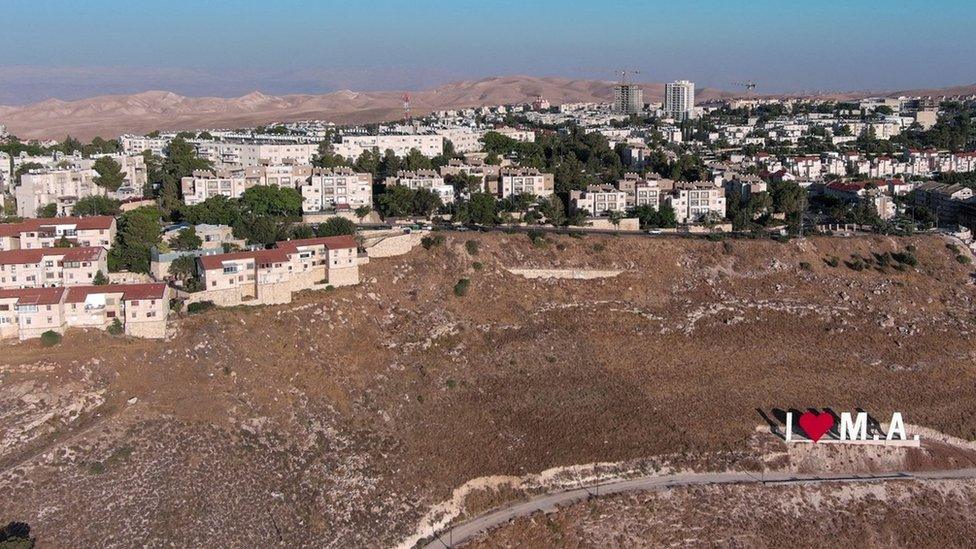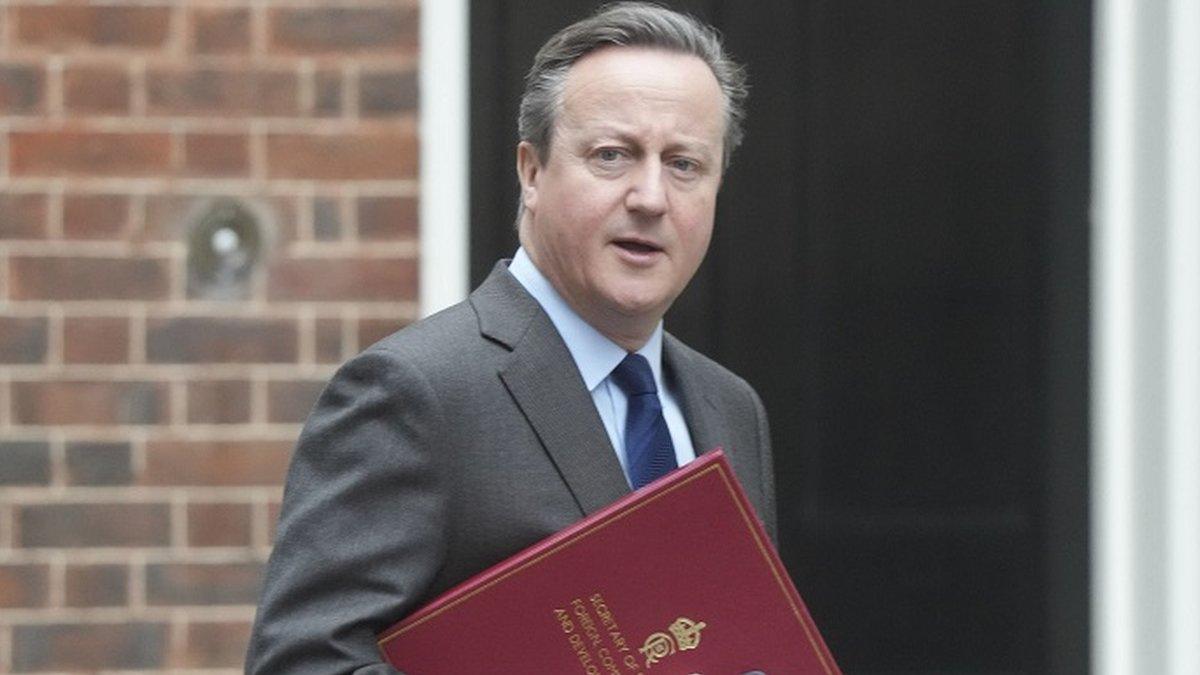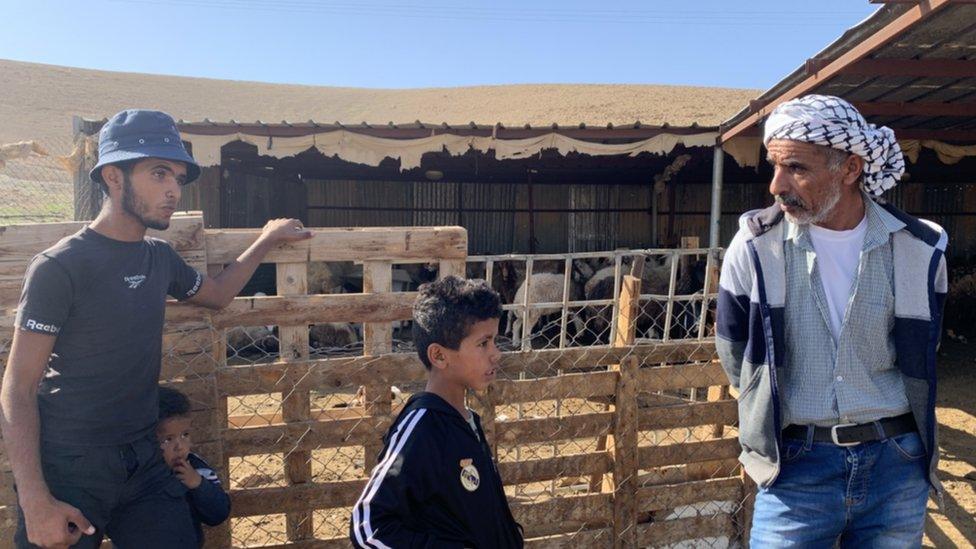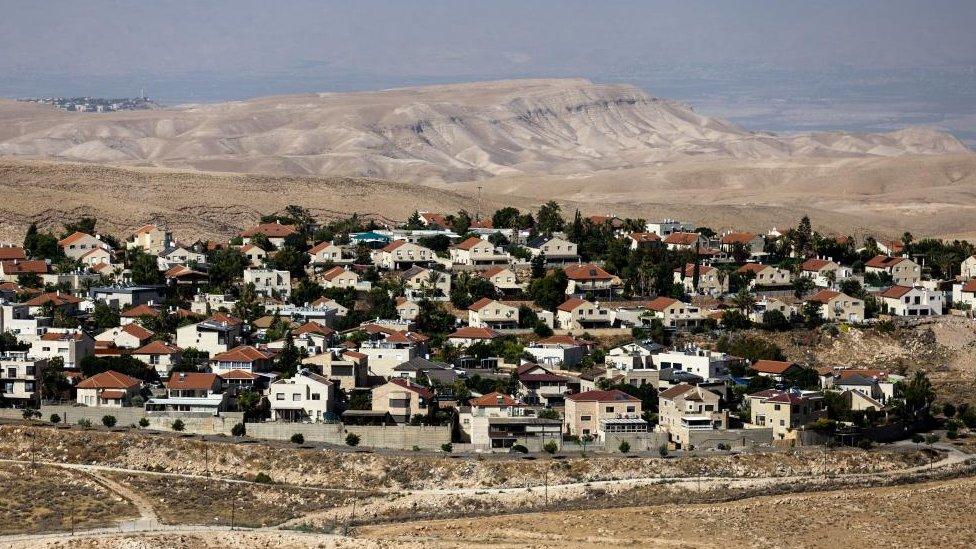Israel approves plans for 3,400 new homes in West Bank settlements
- Published

Plans for more than 2,500 homes in the settlement of Maale Adumim were reportedly advanced
Israel's government has advanced plans for more than 3,400 new homes in settlements in the occupied West Bank.
About 70% of the homes will be built in Maale Adumim, east of Jerusalem, with the rest in nearby Kedar and Efrat, south of Bethlehem.
A minister has said the construction is a response to a deadly Palestinian attack near Maale Adumim two weeks ago.
The Palestinian Authority condemned the plans, which are reportedly the first to be approved since June.
Israel has built about 160 settlements housing some 700,000 Jews since it occupied the West Bank and East Jerusalem - land the Palestinians want as part of a future state - in the 1967 Middle East war.
The vast majority of the international community considers the settlements illegal under international law, although Israel disputes this.
Israel's Haaretz newspaper said the Higher Planning Committee of the Civil Administration - the body that implements Israeli government policy in the West Bank - had advanced plans for the development of 3,476 settler homes on Wednesday - with 2,452 in Maale Adumim, 694 in Efrat and 330 in Kedar.
Finance Minister Bezalel Smotrich, a far-right politician who oversees the Civil Administration, said following the meeting that a total of 18,515 homes in West Bank settlements had now been approved over the past year.
"The enemies try to harm and weaken us but we will continue to build and be built up in this land," he wrote on X, external, formerly Twitter.
However, the Israeli anti-settlement watchdog Peace Now warned: "Instead of building a future of hope, peace, and security, the Israeli government is paving the way for our destruction."
It said the projects would have a negative impact on the possibility of a two-state solution to the Israeli-Palestinian conflict.
The foreign ministry of the West Bank-based Palestinian Authority condemned both the new plans and Mr Smotrich's remarks.
"Settlement is void and illegitimate from its foundation, representing an explicit call for the continuation of the spiral of violence and wars," a statement said.
Mr Smotrich put forward the plans on 22 February, hours after three Palestinian gunmen opened fire on cars on a road near Maale Adumim, killing one Israeli and wounding several others. He said the attack "must have a determined security response but also a settlement response".
US Secretary of State Antony Blinken expressed disappointment with the decision the following day and surprised many observers by declaring that the US viewed settlements as illegal - reverting to a position that had been overturned by former President Donald Trump's administration in 2019.
"It's been longstanding US policy under Republican and Democratic administrations alike that new settlements are counterproductive to reaching an enduring peace," he told reporters in Argentina.
"They're also inconsistent with international law. Our administration maintains a firm opposition to settlement expansion. And in our judgement, this only weakens - it doesn't strengthen - Israel's security."
A Peace Now report said in January that there had been an "unprecedented surge in settlement activities" across the West Bank since the start of the war in the Gaza Strip, triggered by Hamas's deadly attacks in Israel on 7 October.
The West Bank has also experienced a spike in violence over the same period.
The UN says at least 413 Palestinians - members of armed groups, attackers and civilians - have been killed in conflict-related incidents in the West Bank, including East Jerusalem, or in Israel since October.
Fifteen Israelis, including four security forces personnel, have also been killed.
- Published12 February 2024

- Published6 December 2023

- Published27 June 2023
